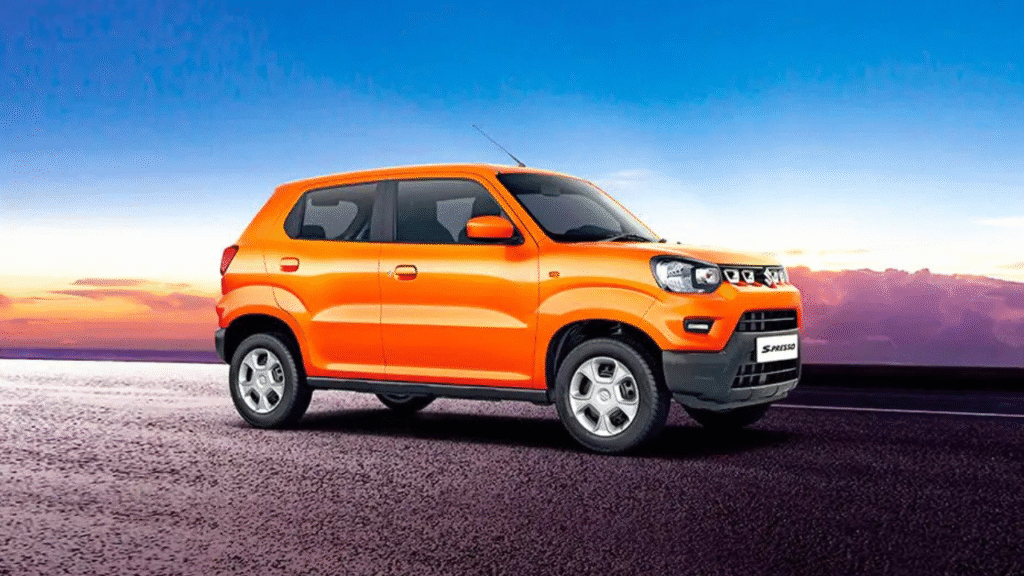Facing a sluggish domestic market and changing consumer preferences, India’s largest automaker Maruti Suzuki is calling for a revival of the small car segment to drive future auto industry growth. Simultaneously, the company is increasingly leaning on exports to sustain momentum in the near term.
In its latest quarterly update, Maruti Suzuki emphasized the urgent need to bring back affordability in the Indian car market, where rising prices have made car ownership difficult for a large segment of the population. Despite higher discounts across models, the company reported a 0.9% decline in sales of small cars and sedans during the January-March 2025 quarter.
“Tax relief on incomes up to ₹12 lakh is unlikely to meaningfully revive demand for small cars,” said Chairman R.C. Bhargava, addressing analysts after the results. He pointed out that only about 12% of Indian households have the purchasing power to buy vehicles priced above ₹10 lakh.
This view aligns with broader data from the Ministry of Heavy Industries, which shows that entry-level car sales, once the bedrock of India’s auto boom, have steadily declined in the past few years as manufacturers shifted focus toward larger, more profitable SUVs.
Export Markets Drive Growth
While domestic growth remains constrained, Maruti is aggressively boosting its international footprint. Exports have emerged as a key driver, contributing roughly 43% of India’s total passenger vehicle exports in the last fiscal year.
Maruti has started exporting newer models such as the Fronx and the Jimny 5-door to overseas markets like Japan, South Africa, Saudi Arabia, Chile, and Mexico. This expansion follows the Indian government’s push to position India as a global manufacturing hub under initiatives like.
The Directorate General of Foreign Trade (DGFT) recently reported a significant rise in automobile exports, a trend Maruti Suzuki is keen to ride. The company expects its export volumes to grow by 20% in FY26, with exports anticipated to be a primary driver of overall revenue and sales growth this year.
“Our strategy is to enhance our presence in both traditional and emerging export markets,” said Bhargava. “The Indian domestic market has challenges, but exports offer a clear path for growth.”
Financial Snapshot
Maruti Suzuki’s latest financial results reflected the challenges and opportunities it faces. For the quarter ending March 31, 2025, the company reported:
- Standalone net profit of ₹37.11 billion, marking a 4.3% decline compared to the same period last year.
- Revenue growth of 5.9%, primarily driven by robust sales of higher-priced SUVs.
- Operating margins fell to 8.7% from 10.8% a year ago, owing to higher marketing expenses and deeper discounting, particularly in the small car segment.
Despite the decline in profitability, the company’s board recommended a healthy dividend, signaling confidence in its long-term prospects.

Challenges Ahead
The Indian automobile sector is at an inflection point. While premium SUVs are driving sales today, industry leaders like Maruti caution that ignoring the small car segment could have long-term repercussions for inclusive economic growth.
Affordability remains a major barrier. The government has made attempts to ease credit availability and offered limited tax relief in the Union Budget 2025-26. However, Bhargava argued that broader structural changes are needed, including lower Goods and Services Tax (GST) rates for smaller, affordable vehicles — a move that would require intervention from policymakers such as the GST Council.
At the same time, Maruti is preparing for the future with increased investments in electric vehicles (EVs). According to earlier announcements, its parent company, Suzuki Motor Corporation, has committed to making India a global production hub for EVs, starting as early as 2026.
Conclusion
As Maruti Suzuki moves to balance domestic challenges with international opportunities, the call for a small car revival signals a crucial debate for India’s auto sector: whether to prioritize short-term profitability through SUVs or rebuild the broad consumer base that originally powered India’s car revolution.
In the immediate future, exports will remain the company’s growth engine. But for sustained, inclusive auto industry growth, a renewed focus on small, affordable cars may be inevitable.




